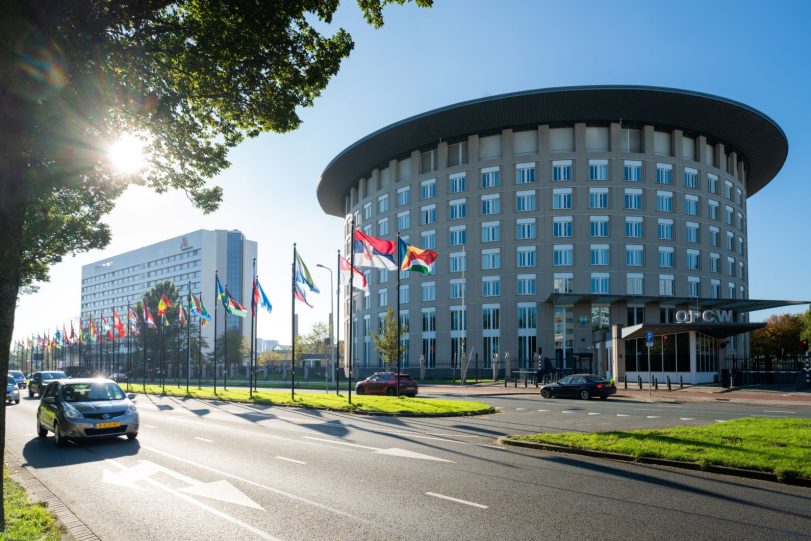
Education in the OPCW: Challenges and Opportunities for Students
31. March 2025On 24 March 2025, a meeting was held on the campus of the Tomas Bata University in Zlín, Faculty of Logistics and Crisis Management in Uherské Hradiště under the auspices of the Institute of Population Protection under the leadership of the Director Prof. Ing. Dusan Vičar, CSc. lecture on Global Chemical Education within the Organization for the Prohibition of Chemical Weapons (OPCW) – Challenges and Opportunities for Students.
This seminar was realized in cooperation with the Ministry of the Interior – General Directorate of the Fire Service of the Czech Republic – Institute of Population Protection, which is located in Lázně Bohdaneč and which cooperates very closely through Colonel Ing. Ladislava Navrátilová Ph.D., with the above mentioned OPCW organization. It is certainly worth mentioning that in 2022, for this activity, the IOOB received the prestigious award Winner of the “OPCW-The Hague Award”
The Organisation for the Prohibition of Chemical Weapons (OPCW), based in The Hague, the Netherlands, plays an important role in global security. Its goal is to enforce and monitor the Chemical Weapons Convention – CWC – an instrument that has helped to eliminate 100% of the declared stockpiles of these weapons. Education is an essential part of this project. It is the young generation of professionals and students who will one day be responsible for ensuring that these weapons never return to the arsenals of states.
The OPCW offers a wide range of educational and professional programmes. Among the best known is the Associate Programme, which provides intensive training to young professionals in the fields of chemistry, security and international relations. There is also the Internship Programme, open to students and recent graduates, or research grants focusing on chemical safety, laboratory analysis and toxic substance detection. These opportunities are not just for chemists – students of law, political science, biotechnology or security studies can also get involved.
In the Czech Republic, chemical safety education and cooperation with the OPCW is developing significantly. The main partner is the Institute of Public Protection (IOO), which has long been involved in CBRN protection issues (chemical, biological, radiological and nuclear threats). The person who is responsible for this cooperation in the field of education and international cooperation is Col. Ing. Ladislava Navrátilová, Ph.D., who is actively involved in the exchange of experience and dissemination of expertise in cooperation with the OPCW. Thanks to her efforts, Czech students and experts also have the opportunity to participate in international educational projects and be part of the global community in the field of chemical disarmament.
One of the main challenges for the future is to raise awareness of these opportunities among students. Many do not realise that they can be part of a process that has a real impact on world peace and security. At the same time, there is a need to strengthen cooperation between universities, research institutions and organisations such as the OPCW to make education in this field more accessible and practical.
Chemical disarmament education is not just a technical specialism – it is a challenge with deep ethical and societal dimensions. And today is an ideal time for Czech students to get involved in this field. Their knowledge, passion and responsibility can shape a world without chemical weapons.